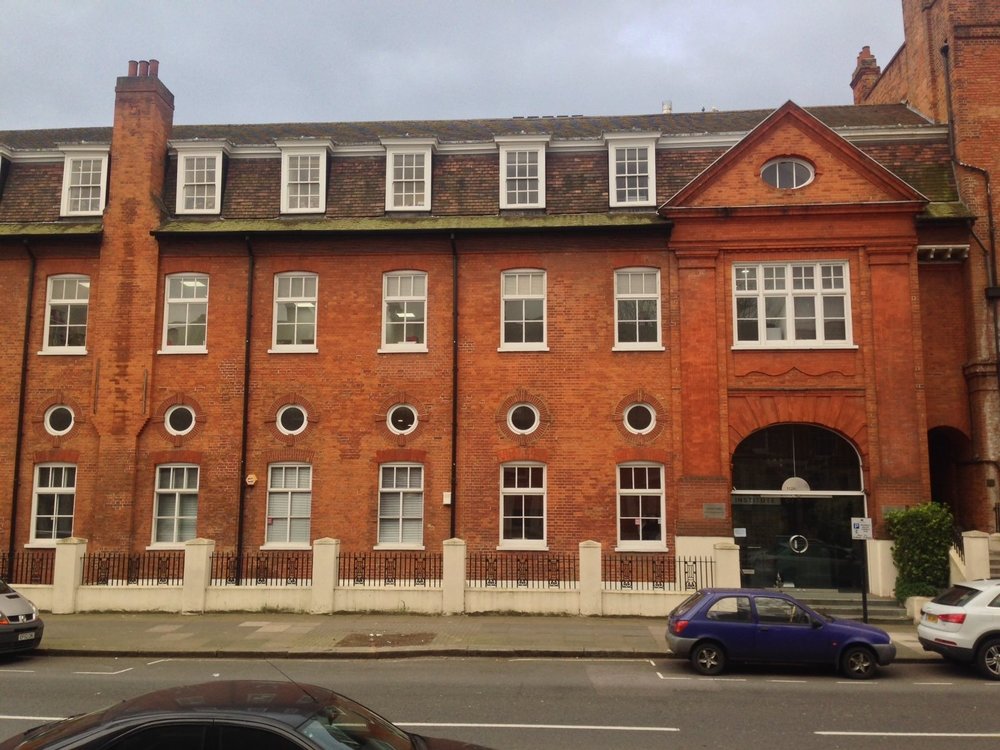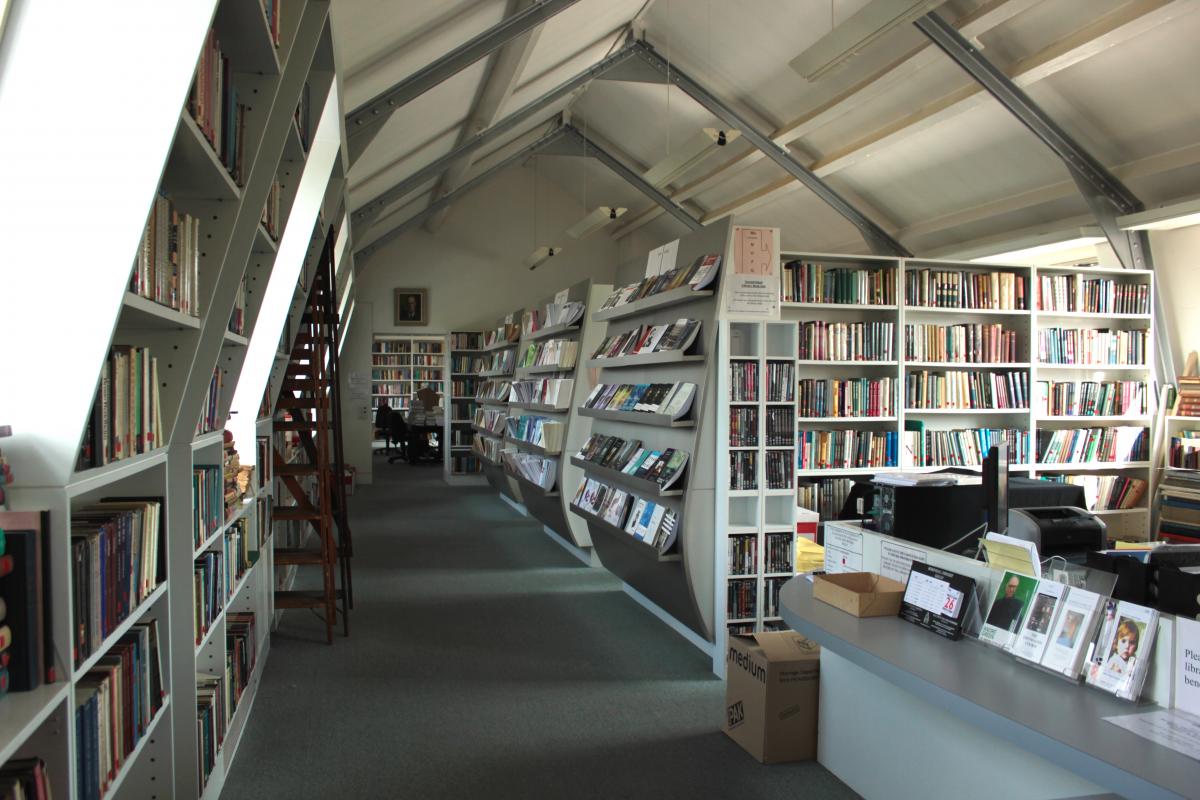The British Psychoanalytical Society
(Parts of this text were previously published in ‘Letter from London’, in The International Journal of Psychoanalysis Volume 100, Issue 3)
The British Psychoanalytic Society and the Institute of Psychoanalysis have a long and rich history. Over the past century they have trained and counted among their members many of the most original and influential figures in psychoanalysis. Established by Ernest Jones in 1913, the Society has nurtured and benefited from the work of profoundly innovative and inspiring psychoanalysts, including Melanie Klein, Anna Freud, Wilfred Bion, Ronald Fairbairn and Donald Winnicott, among many others. Based in 96 Gloucester Place from 1925, the Clinic opened there in 1926 and John Rickman saw the first patient on 6th May which happened to also be Freud’s birthday. The Society subsequently moved to New Cavendish Street before moving to its new and improved current facilities in 2000.

Surviving the social, political and psychological tumult of both World Wars, the British Society grew and evolved to accommodate new members, ideas and attitudes. During the 1930s and ‘40s, a large number of analysts – Sigmund and Anna Freud included – fled to London from Nazi persecution in Germany, Austria, Hungary and elsewhere. There then followed the Controversial Discussions the legacy of which has been a rich, vibrant, productive and yes, sometimes difficult organisation. The British Society has enabled and worked with the disagreements and debates, and different approaches to psychoanalytic thought and practice have sprung up over the decades. What has remained constant is the Society’s role as an active, supportive and thriving centre of psychoanalytic thought and practice. Each of the theoretical groups have their own debating forums and each contribute to the lively tradition of scientific meetings held monthly. We now have 556 Members, 228 of which are Fellows, with nine Distinguished Fellows and our Honorary Fellows include Simon Russell Beale, Anish Kapoor, Mervyn King, Hilary Mantel, Rowan Williams and the late Bernardo Bertolucci. We have 20 Associate Members both academic and clinical. There are 68 candidates undergoing training including 8 NES entrants and 79 of our Members are training analysts.
Functioning as a registered charity, we have a President, currently Professor Rosine Perelberg, and Board all of whom are elected by the membership. The Society has a number of hard-working committees which oversea and develop our different functions. All our committee members contribute their time for free. Our Society is regulated by the Charity Commission and also by the BPC (British Psychoanalytic Council) which is a voluntary regulator of the psychoanalytic psychotherapy profession. This means that our members have to show fitness to practise. We are required to show that all our members regularly discuss their clinical work with one or more psychoanalysts and that we are involved in continuous professional development through courses, attendance to supervision or clinical discussions, etc.
The Institute is dedicated to providing high standards of psychoanalytic training in both adult and child analysis and has also developed a wide range of other courses to suit all levels. Training as a Psychoanalyst the British Society follows the Eitingon Model. Our candidates are required to be in 5x weekly training analysis and, following a year long infant observation, to see their training patients in 5x weekly analysis. Patients for candidates are provided by the London Clinic of Psychoanalysis. Qualification to Membership can be followed in time by further qualification as a Fellow of the Society and/or can further qualify as Child Psychoanalysts. For those with an interest in psychoanalysis who are not pursuing training, the three terms of the Introductory Lectures, the Foundation and Post Foundation Courses, and Summer Schools provide an engaging and accessible forum for learning and discussing core psychoanalytic ideas. More information regarding these courses is available here (https://psychoanalysis.org.uk/education). More recently, we have developed a wide range of very interesting internet based “e-learning” programmes for both psychoanalysts and wider audiences. We offer introductory "taster" courses to wider audiences on psychoanalytic ideas and its applications with the primary aim of interesting students who would otherwise not be ready to engage in formal psychoanalytic training. The model has been working well and has supported the work of IPA Societies worldwide. Students who complete our online courses are encouraged to be in touch with their local IPA Societies should they wish to engage in formal training. Online Education courses are also available as teaching resources for universities and formal training organisations.
Through the London Clinic of Psychoanalysis and Clinical Services North (https://psychoanalysis.org.uk/iopa-clinics/consultation-service) we offer low fee analysis to many adults, children and young people in the UK who would not otherwise have been able to afford it and our candidates see two patients for 5x weekly analysis for free. Today we also offer psychoanalytic consultations to anyone interested in exploring the possibility of analytic treatment, either through the Clinic or by referral to psychoanalysts in private practice. Over 70 adults, children and young people are currently accessing low-fee psychoanalysis through the London Clinic of Psychoanalysis and).
The British Society is committed to developing the accessibility to psychoanalytic ideas and practice throughout the UK and internationally. We hold many events including the “Political Minds” Series, the Poetry Conference, the Film Festival, the English-Speaking Weekend Conference and are involved in other outreach projects with Opera North, the National Health Service and Child Forums. In the last two years with changes to the regulations of the Eitingon Model by the IPA, we raised our concern about what we felt was a possible erosion of psychoanalytic training. At that time our Society joined a group comprising of nine other Societies in Europe and Australia called “Exchange Visits Programme”. The EVP aims to set up exchange visits for European Societies using the Eitingon model and developing research and collaborative work.
As a consequence of its work and history, the British Psychoanalytical Society’s Library has one of the most extensive and complete collections of psychoanalytic material in existence, with over 20,000 items ranging from the 19th century to the present day. The Library’s main role is to support the members of the British Psychoanalytical Society in their research and professional activities and is also at the core of most of the training, outreach and education programmes. Simultaneously, it includes donations from Ernest Jones, James Strachey and Donald Winnicott who also donated his dining table which is now in our Boardroom.

The library catalogue is now available online, so that it is now possible to search our primary holdings via the Institute of Psychoanalysis website. We do not as yet have an access policy for IPA members as such, but our wonderful librarian would be prepared to offer accredited IPA members free access during Library opening hours, albeit without borrowing rights. In line with our established collections policy, we have donated thousands of books and journals to the International Psychoanalytic University in Berlin, to the Bodleian Library, to the Welcome Trust, and to other psychoanalytic societies and trainings here and abroad.
The archives of the British Psychoanalytical Society are stored in a dedicated strong room and the Archivist manages preservation and access to them, ensuring they are catalogued and packaged in line with international archival standards. The collections include a wealth of material relating to the history and clinical practice of the British Psychoanalytical Society and the papers and correspondence of eminent psychoanalysts such as Jones, John Rickman, James & Alix Strachey, Sylvia Payne and Michael Balint. Our Archives Catalogues for our collections are available online (https://psychoanalysis.org.uk/archive/view-archive-collections-0) and a comprehensive enquiry service is provided. Scholars can make an appointment to consult papers in the Institute Library and all members of the IPA can access our collections if they wish. It is worth noting that some parts of our collections are closed off to public access, usually to protect the data of individuals in-line with the Data Protection Act 2018 & the EU GDPR. Do contact the Archivist on [email protected].
The Institute of Psychoanalysis has a long a rich history of book publication, starting in 1921 with the International Psychoanalytical Library, co-published with Virginia and Leonard Woolf’s Hogarth Press. Under the editorship of several influential psychoanalysts, this rich collection comprised 118 books, including many of the early translations of Freud and the work of many leading British and Continental analysts. In 1987 the New Library of Psychoanalysis published its first book and is now published jointly by Routledge Mental Health in association with the Institute of Psychoanalysis. The New Library aims at stimulating a greater and more widespread appreciation of psychoanalysis, as well as encouraging deeper understanding between psychoanalysis and other disciplines. We also publish a series of short books, Ideas in Psychoanalysis, on specific topics of general interest.
Today the New Library plays an important role in helping the different schools of psychoanalysis better understand each other, particularly in stimulating the exchange of ideas between British and American analysts. It has published books representing all three main approaches in British psychoanalysis, including an important work about the debates in the British Psychoanalytical Society between Kleinian, Viennese and `middle group’ analysts in the mid-twentieth century. The New Library is committed to representing a variety of psychoanalytic ideas and approaches from both the UK and the rest of the world. Under the guidance of Ricardo Steiner and Inge Wise as successive Foreign Rights Editors, a number of New Library books have also been translated and published across the world, in Brazil, Germany, France, Italy, Peru, Spain and Japan.
In the space of a century, from a small but significant beginning and in the context of heated debate, the British Society has become an organisation steeped in history and tradition and also a Society looking to maintain, develop, apply, and make accessible its knowledge and work to a wider audience in the twenty-first century. It has and wishes to develop links to both the other UK organisations and international colleague organisations. It is an active participant both in activities with European colleagues of the European Psychoanalytic Federation and internationally with the IPA. Current collaboration includes that with the IPA Committee on Child and Adolescent Psychoanalysis on the organisation of the Child & Adolescent Conference. Our Members are involved in a huge variety of activities abroad, from speaking at events to teaching and research and the Society continues to be involved in many different activities and programmes in different parts of the world.
Whilst we hold a strong connection to our psychoanalytic past and history, the British Society is highly enriched by our exchanges with analysts from across the world and we look to the future with the wish to keep on developing and broadening the appeal and accessibility of psychoanalysis.
Catalina Bronstein (Past President, BPAS) and Avi Shmueli (Hon. Sec, BPAS)